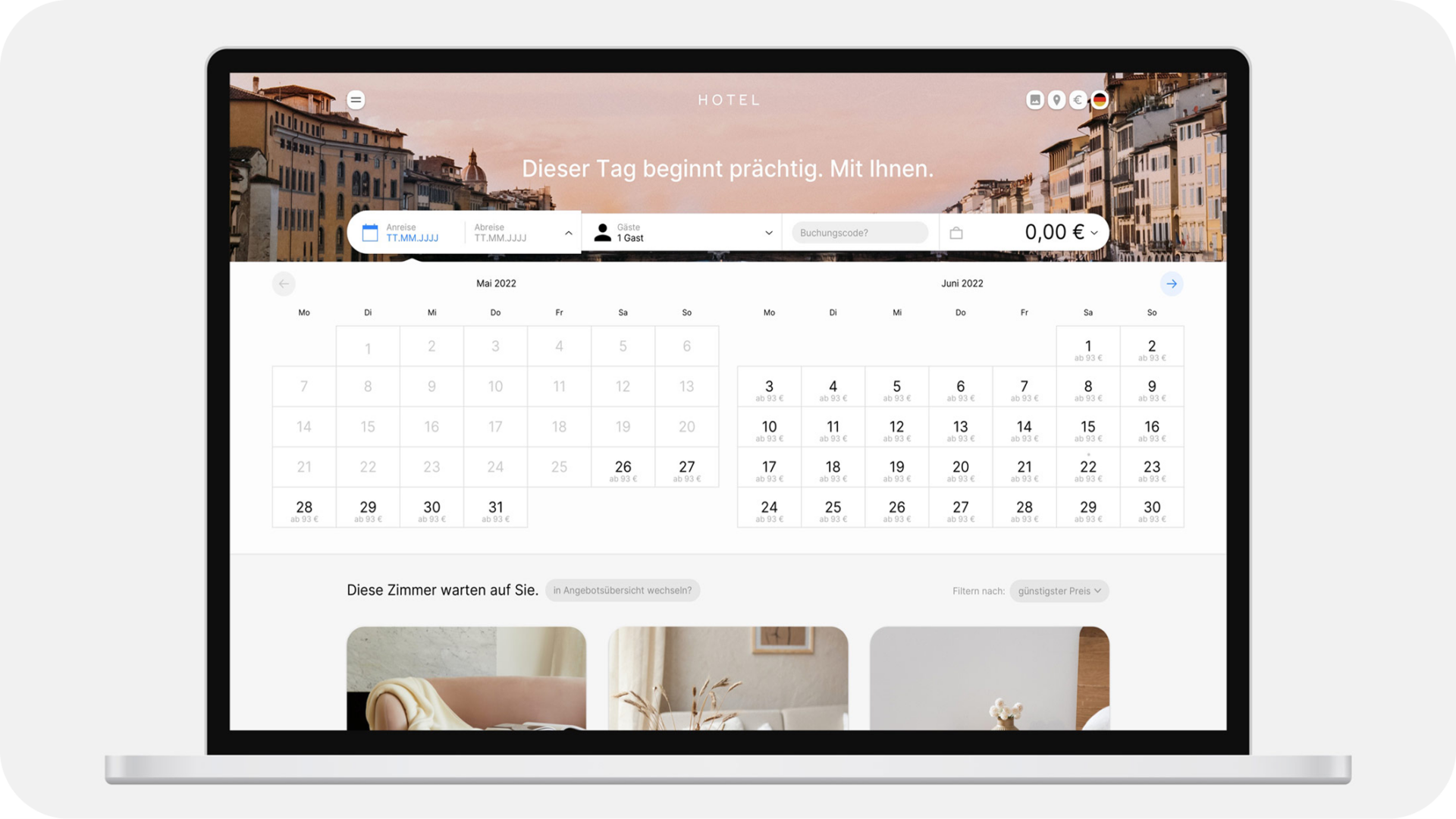Reach more guests – with an accessible website
Accessibility is not a marginal issue – it affects us all: 10% of people are dependent on it, 40% need it in certain situations and 100% benefit from it. With the new Accessibility Reinforcement Act (BFSG), which comes into force on June 28, 2025, barrier-free digital services will become mandatory – also for the hotel industry. But what does this mean for hotels in concrete terms? What requirements will websites and booking routes have to meet in future – and what is the best way to implement them?
What does the BFSG mean for hotels?
Hotels that offer online bookable offers, digital guest services or services on their website are obliged to make these accessible. This includes:
- the hotel website
- the online booking mask
- the voucher sale
- the payment process
- Customer service via chat or form
- and even the cookie banner
Micro-enterprises with fewer than 10 employees and an annual turnover of less than EUR 2 million are generally exempt – unless barrier-free implementation is possible without a disproportionate burden.
What do hotels need to do to be barrier-free?

1. structured, clearly understandable content
- Use clear page layouts with a logical structure.
- Avoid technical jargon or unnecessarily complex formulations.
- Use easy-to-understand language, especially for descriptions, terms and conditions, payment terms or FAQs.
2. provide alternative content
- Alt texts for images – so that guests with visual impairments can also understand what is being shown.
- Transcripts and subtitles for videos – particularly relevant for image videos or instructions.
- Text descriptions for icons and symbols – buttons such as “To booking” should also be labeled.
3. barrier-free navigation and control
- The website and booking screen must be fully operable with the keyboard.
- Contrasts and font sizes must also be suitable for people with visual impairments.
- No flickering content or automatically moving elements – they can trigger epileptic seizures or discomfort.
4 Technical implementation and compatibility
- Your website must be compatible with screen readers.
- HTML structures should be semantically correct (e.g. clear heading hierarchy).
- Forms (e.g. booking fields, contact forms) should be labeled and accessible.
5. document accessibility
- Hotels should provide a statement on digital accessibility (e.g. in the footer) describing which measures have been implemented and where there is still room for improvement.
A feedback mechanism should also be set up so that users can report problems.
OnePageBooking is ready – 5 like 6.

With the introduction of OnePageBooking 6, we have already taken into account many of the key requirements of the BFSG. All other legal requirements will be implemented for OnePageBooking 6, OnePageBooking 5, VoucherBooking 3, Voucher Booking 2 and Multi Property. OnePageBooking 4, OnePageBooking 3 and VoucherBooking 1 are not BFSG-compliant and therefore do not meet the legal requirements. Of course, we also have a solution for you here. Please feel free to contact us.
Why take action now?
The BFSG is coming – and with it the obligation for digital accessibility. But instead of seeing the issue as a mere obligation, it is worth recognizing the added value for your guests and your brand: Accessibility creates trust, breaks down barriers and expands your target group.





